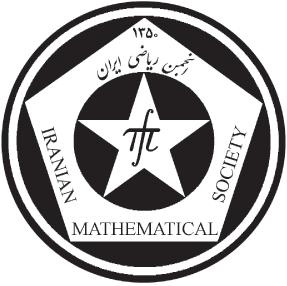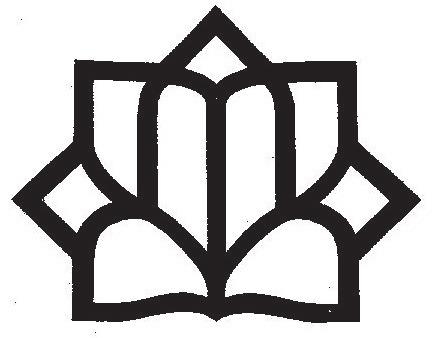OnNeutroQuadrupleGroups
FlorentinSmarandache
DepartmentofMathematicsandScience,UniversityofNewMexico,Gallup,NM 87301,USA
AkbarRezaei∗
DepartmentofMathematics,PayameNoorUniversity,P.O.Box19395-3697,Tehran, Iran
AdesinaAbdulAkeemAgboola
DepartmentofMathematics,CollegeofPhysicalSciences,DirectorICTREC,Federal UniversityofAgriculture,PMB2240,Abeokuta,OgunState,Nigeria YoungBaeJun GyeongsangNationalUniversity,SouthKorea RajabAliBorzooei
DepartmentofMathematics,ShahidBeheshtiUniversity,Tehran,Iran BijanDavvaz
DepartmentofMathematics,YazdUniversity,Yazd,Iran ArshamBorumandSaeid
DepartmentofPureMathematics,FacultyofMathematicsandComputer,Shahid BahonarUniversityofKerman,Kerman,Iran MohammadAkram

UniversityofthePunjab,NewCampus,Lahore,Pakistan MohammadHamidiandSaeedMirvakili
DepartmentofMathematics,PayameNoorUniversity,P.O.Box19395-3697,Tehran, Iran

Abstract. Asgeneralizationsandalternativesofclassicalalgebraicstructurestherehavebeenintroducedin2019theNeutroAlgebraicStructures(or NeutroAlgebras)andAntiAlgebraicstructures(orAntiAlgebras).Unlike theclassicalalgebraicstructures,wherealloperationsarewell-definedandall axiomsaretotallytrue,inNeutroAlgebrasandAntiAlgebrastheoperations maybepartiallywell-definedandtheaxiomspartiallytrueorrespectively totallyouter-definedandtheaxiomstotallyfalse.TheseNeutroAlgebras andAntiAlgebrasformanewfieldofresearch,whichisinspiredfromour realworld.Inthispaper,westudyneutrosophicquadruplealgebraicstructuresandNeutroQuadrupleAlgebraicStructures.NeutroQuadrupleGroup isstudiedinparticularandseveralexamplesareprovided. Itisshownthat (NQ(Z), ÷)isaNeutroQuadrupleGroup.SubstructuresofNeutroQuadrupleGroupsarealsopresentedwithexamples.
Keywords: Neutrosophicquadruplenumber,NeutroQuadruple Group,NeutroQuadrupleSubgroup.
AMSMathematicalSubjectClassification[2010]: 03E72, 06F35,08A72. ∗
F.Smarandacheetal.
1.Introduction
ItwasstartedfromParadoxism,thentoNeutrosophy,andafterwardstoNeutrosophicSetandNeutrosophicAlgebraicStructures.Paradoxism[10]isaninternationalmovementinscienceandculture,foundedbySmarandachein1980s, based onexcessiveuseofantitheses,oxymoron,contradictions,andparadoxes.During thethreedecades(1980-2020)hundredsofauthorsfromtensofcountriesaround theglobecontributedpapersto15internationalparadoxistanthologies.In1995, Smarandacheextendedtheparadoxism(basedonopposites)toanewbranchof philosophycalledneutrosophy(basedonoppositesandtheirneutrals), thatgave birthtomanyscientificbranches,suchas:neutrosophiclogic,neutrosophicset, neutrosophicprobabilityandstatistics,neutrosophicalgebraicstructures,andso onwithmultipleapplicationsinengineering,computerscience,administrative work,medicalresearchetc.NeutrosophyisanextensionofYin-YangAncientChinesePhilosophyandofcourseofDialectics.FromClassicalAlgebraicStructuresto NeutroAlgebraicStructuresandAntiAlgebraicStructures.In2019Smarandache [8]generalizedtheclassicalglgebraicstructurestoNeutroAlgebraicStructures(or NeutroAlgebras)whoseoperationsandaxiomsarepartiallytrue,partiallyindeterminate,andpartiallyfalseasextensionsofPartialAlgebra,andtoAntiAlgebraic Structures(orAntiAlgebra)whoseoperationsandaxiomsaretotallyfalse.“Algebra”canbe:groupoid,semigroup,monoid,group,commutativegroup,ring, field,vectorspace,BCK-Algebra,BCI-Algebra,K-algebra,BE-algebra,etc.(See [1]-[7]).
Inthepresentpaper,westudyneutrosophicquadruplealgebraicstructures andNeutroQuadrupleAlgebraicStructures.NeutroQuadrupleGroupis studied inparticularandseveralexamplesareprovided.Itisshownthat(NQ(Z), ÷)is aNeutroQuadrupleGroup.SubstructuresofNeutroQuadrupleGroups arealso presentedwithexamples.
Thesetsofnatural/integer/rational/real/complexnumbersarerespectively denotedby N ⊆ Z ⊆ Q ⊆ R ⊆ C
TheNeutrosophicQuadrupleNumbersandtheAbsorbanceLawwereintroducedbySmarandachein2015[9];theyhavethegeneralform: N = a + bT + cI + dF, where a,b,c,d maybenumbersofanytype(natural,integer,rational,irrational,real,complex,etc.),where“a”istheknownpartofthe neutrosophicquadruplenumber N ,while“bT + cI + dF ”istheunknownpartof theneutrosophicquadruplenumber N ;thentheunknownpartissplitintothree subparts:degreeofconfidence(T ),degreeofindeterminacyofconfidence(nonconfidence)(I),anddegreeofnon-confidence(F ). N isafour-dimensionalvector thatcanalsobewrittenas: N =(a,b,c,d).
Therearetranscendental,irrationaletc.numbersthatarenotwellknown, theyareonlypartiallyknownandpartiallyunknown,theymayhaveinfinitely manydecimals.Noteventhemostmodernsupercomputerscancomputemore thanafewthousandsdecimals,buttheinfinitelymanyleftdecimals stillremain unknown.Therefore,suchnumbersareverylittleknown(becauseonlyafinite numberofdecimalsareknown),andinfinitelyunknown(becauseaninfinitenumberofdecimalsareunknown).Takeforexample: √2=1 4142
2.ArithmeticOperationsontheNeutrosophicSetofQuadruple Numbers
Definition 2.1 Aneutrosophicsetofquadruplenumbersdenotedby NQ(X) isasetdefinedby
NQ(X)= {(a,bT,cI,dF ): a,b,c,d ∈ R or C}, where T,I,F havetheirusualneutrosophiclogicmeanings.
Definition 2.2 Aneutrosophicquadruplenumberisanumberoftheform (a,bT,cI,dF ) ∈ NQ(X).Foranyneutrosophicquadruplenumber(a,bT,cI,dF ) representinganyentitywhichmaybeanumber,anidea,anobject,etc, a iscalled theknownpartand(bT,cI,dF )iscalledtheunknownpart.Twoneutrosophic quadruplenumbers x =(a,bT,cI,dF )and y =(e,fT,gI,hF )aresaidtobeequal written x = y ifandonlyif a = e,b = f,c = g,d = h
Multiplicationoftwoneutrosophicquadruplenumberscannotbecarriedout likemultiplicationoftworealorcomplexnumbers.Inordertomultiplytwo neutrosophicquadruplenumbers a =(a1,a2T,a3I,a4F ),b =(b1,b2T,b3I,b4F ) ∈ NQ(X),theprevalenceorderof {T,I,F } isrequired. Twoneutrosophicquadruplenumbers m =(a1,b1T,c1I,d1F )and n =(a2,b2T, c2I,d2F )cannotbedividedaswedoforrealandcomplexnumbers.Sincethe literalneutrosophiccomponents T , I and F arenotinvertible,theinversionofa neutrosophicquadruplenumberorthedivisionofaneutrosophicquadruplenumberbyanotherneutrosophicquadruplenumbermustbecarriedoutasystematic way.Supposewearetoevaluate m/n.Thenwemustlookforaneutrosophic quadruplenumber p =(x,yT,zI,wF )equivalentto m/n.Inthisway,wewrite m/n = p
⇒ (a1,b1T,c1I,d1F ) (a2,b2T,c2I,d2F ) =(x,yT,zI,wF )
⇔ (a2,b2T,c2I,d2F )(x,yT,zI,wF ) ≡ (a1,b1T,c1I,d1F ). (1)
Assumingtheprevalenceorder T ≻ I ≻ F andfromtheequalityoftwo neutrosophicquadruplenumbers,weobtainfromEq.(1) a2x = a1, b2x +(a2 + b2 + c2 + d2)y + b2z + b2w = b1, c2x +(a2 + c2 + d2)z + c2w = c1, d2x +(a2 + d2)w = d1,
asystemoflinearequationsinunknowns x,y,z and w.Bysimilarlyassumingthe prevalenceorder T ≺ I ≺ F ,weobtainfromEq.(1) a2x = a1, b2x +(a2 + b2)y = b1, c2x + c2y +(a2 + b2 + c2)z = c1, d2x + d2y + d2z +(a2 + b2 + c2 + d2)w = d1,
asystemoflinearequationsinunknowns x,y,z and w
F.Smarandacheetal.
3.NeutrosophicQuadrupleAlgebraicStructures,Neutrosophic QuadrupleAlgebraicHyperStructuresandNeutroQuadruple AlgebraicStructures
3.1.NeutrosophicQuadrupleAlgebraicStructuresandNeutrosophic QuadrupleAlgebraicHyperStructures. Let NQ(X)beaneutrosophic quadruplesetandlet ∗ : NQ(X) × NQ(X) → NQ(X)beaclassicalbinary operationon NQ(X).Thecouple(NQ(X), ∗)iscalledaneutrosophicquadruple algebraicstructure.Thestructure(NQ(X), ∗)isnamedaccordingtotheclassical lawsandaxiomssatisfiedorobeyedby ∗.
If ∗ : NQ(X) × NQ(X) → P(NQ(X))istheclassicalhyperoperationon NQ(X).Thenthecouple(NQ(X), ∗)iscalledaneutrosophicquadruplehyper algebraicstructure;andthehyperstructure(NQ(X), ∗)isnamedaccordingto theclassicallawsandaxiomssatisfiedby ∗
3.2.NeutroQuadrupleAlgebraicStructures. Inthissectionunlessotherwisestated,theoptimisticprevalenceorder T ≻ I ≻ F willbeassumed. Definition 3.1 Let NQ(G)beanonemptysetandlet ∗ : NQ(G)×NQ(G) → NQ(G)beabinaryoperationon NQ(G).Thecouple(NQ(G), ∗)iscalledaneutrosophicquadruplegroupifthefollowingconditionshold:
(QG1) x ∗ y ∈ G ∀x,y ∈ NQ(G)[closurelaw]. (QG2) x ∗ (y ∗ z)=(x ∗ y) ∗ z ∀x,y,z ∈ G [axiomofassociativity].
(QG3)Thereexists e ∈ NQ(G)suchthat x ∗ e = e ∗ x = x ∀x ∈ NQ(G)[axiom ofexistenceofneutralelement].
(QG4)Thereexists y ∈ NQ(G)suchthat x ∗ y = y ∗ x = e ∀x ∈ NQ(G)[axiom ofexistenceofinverseelement],where e istheneutralelementof NQ(G). Ifinaddition ∀x,y ∈ NQ(G),wehave (QG5) x ∗ y = y ∗ x,then(NQ(G), ∗)iscalledacommutativeneutrosophic quadruplegroup.
Definition 3.2. [NeutroSophicationofthelawandaxiomsoftheneutrosophicquadruple]
(NQ(G)1)Thereexistsomeduplets(x,y), (u,v), (p,q), ∈ NQ(G)suchthat x∗y ∈ G (inner-definedwithdegreeoftruthT)and[u ∗ v =indeterminate(with degreeofindeterminacyI)or p ∗ q ∈ NQ(G)(outer-defined/falsehood withdegreeoffalsehoodF)][NeutroClosureLaw]. (NQ(G)2)Thereexistsometriplets(x,y,z), (p,q,r), (u,v,w) ∈ NQ(G)suchthat x ∗ (y ∗ z)=(x ∗ y) ∗ z (inner-definedwithdegreeoftruthT)and[[p ∗ (q ∗ r)]or[(p ∗ q) ∗ r]=indeterminate(withdegreeofindeterminacyI)or u ∗ (v ∗ w) =(u ∗ v) ∗ w (outer-defined/falsehoodwithdegreeoffalsehood F)][NeutroAxiomofassociativity(NeutroAssociativity)].
(NQ(G)3)Thereexistsanelement e ∈ NQ(G)suchthat x ∗ e = e ∗ x = x (innerdefinedwithdegreeoftruthT)and[[x ∗ e]or[e ∗ x]=indeterminate(with degreeofindeterminacyI)or x ∗ e = x = e ∗ x (outer-defined/falsehood withdegreeoffalsehoodF)]foratleastone x ∈ NQ(G)[NeutroAxiom ofexistenceofneutralelement(NeutroNeutralElement)].
(NQ(G)4)Thereexistsanelement u ∈ NQ(G)suchthat x ∗ u = u ∗ x = e (innerdefinedwithdegreeoftruthT)and[[x∗u]or[u∗x)]=indeterminate(with degreeofindeterminacyI)or x ∗ u = e = u ∗ x (outer-defined/falsehood withdegreoffalsehoodF)]foratleastone x ∈ G [NeutroAxiomofexistenceofinverseelement(NeutroInverseElement)],where e isaNeutro NeutralElementin NQ(G).
(NQ(G)5)Thereexistsomeduplets(x,y), (u,v), (p,q) ∈ NQ(G)suchthat x ∗ y = y ∗ x (inner-definedwithdegreeoftruthT)and[[u ∗ v]or[v ∗ u]= indeterminate(withdegreeofindeterminacyI)or p ∗ q = q ∗ p (outerdefined/falsehoodwithdegreeoffalsehoodF)][NeutroAxiomofcommutativity(NeutroCommutativity)].
Definition 3.3. ANeutroQuadrupleGroup NQ(G)isanalternativetothe neutrosophicquadruplegroup Q(G)thathasatleastoneNeutroLaworatleast oneof {NQ(G)1,NQ(G)2,NQ(G)3,NQ(G)4} withnoAntiLaworAntiAxiom.
Definition 3.4 ANeutroCommutativeQuadrupleGroup NQ(G)isanalternativetothecommutativeneutrosophicquadruplegroup Q(G)thathasat leastoneNeutroLaworatleastoneof {NQ(G)1,NQ(G)2,NQ(G)3,NQ(G)4} and NQ(G)5withnoAntiLaworAntiAxiom.
NeutroClosureof ÷ over NQ(Z)
Forthedegreeoftruth,let a =(0, 0T,I, 0F ) ∈ NQ(Z).Then
a ÷ a = (0, 0T,I, 0F ) (0, 0T,I, 0F ) =(1 k1 k2, 0T,k1I,k2F ) ∈ NQ(Z),k1,k2 ∈ Z.
Forthedegreeofindeterminacy,let a =(4, 5T, 2I, 7F ),b =(0, 6T,I, 3F ) ∈ NQ(Z).Then
a ÷ b = (4, 5T, 2I, 7F ) (0, 6T,I, 3F ) = 4 0 , ?T, ?I, ?F ∈ NQ(Z).
Forthedegreeoffalsehood,let a =(0, 0T, 0I,F ),b =(0, 0T, 0I, 2F ) ∈ NQ(Z). Then
a ÷ b = (0, 0T, 0I,F ) (0, 0T, 0I, 2F ) = 1 2 k, 0T, 0I,kF ∈ NQ(Z),k ∈ Z
NeutroAssociativityof ÷ over NQ(Z)
Forthedegreeoftruth,let a =(6, 6T, 6I, 6F ),b =(2, 2T, 2I, 2F ), c =( 1, 0T, 0I, 0F ) ∈ NQ(Z).Then
a ÷ (b ÷ c)=(6, 6T, 6I, 6F ) ÷ ((2, 2T, 2I, 2F ) ÷ ( 1, 0T, 0I, 0F )) =(6, 6T, 6I, 6F ) ÷ ( 2, 0T, 0I, 0F ) =( 3, 0T, 0I, 0F ).
(a ÷ b) ÷ c =((6, 6T, 6I, 6F ) ÷ (2, 2T, 2I, 2F )) ÷ ( 1, 0T, 0I, 0F ) =(3, 0T, 0I, 0F ) ÷ ( 1, 0T, 0I, 0F ) =( 3, 0T, 0I, 0F ) 1231
F.Smarandacheetal.
Forthedegreeofindeterminacy,let a =(4, T, 2I, 7F ),b =(0,T, 0I, 8F ), c =(0, 0T, 9I, F ) ∈ NQ(Z).Then a ÷ (b ÷ c)=(4, T, 2I, 7F ) ÷ ((0,T, 0I, 8F ) ÷ (0, 0T, 9I, F )) =(4, T, 2I, 7F ) ÷ 8 k, 1 8 T, 9I,kF ,k ∈ Z =(?, ?T, ?I, ?F ) (a ÷ b) ÷ c =((4, T, 2I, 7F ) ÷ (0,T, 0I, 8F )) ÷ (0, 0T, 9I, F ) = 4 0 , ?T, ?I, ?F ÷ (0, 0T, 9I, F ) =(?, ?T, ?I, ?F ).
Forthedegreeoffalsehood,let a =(0, 5T, 0I, 0F ),b =(0,T, 0I, 0F ),c = (5, 0T, 0I, 0F ) ∈ NQ(Z).Then a ÷ (b ÷ c)=(0, 5T, 0I, 0F ) ÷ ((0,T, 0I, 0F ) ÷ (5, 0T, 0I, 0F )) =(0, 5T, 0I, 0F ) ÷ 0, 1 5 T, 0I, 0F =(25 k1 k2 k3,k1T,k2I,k3F ) ∈ NQ(Z),k1,k2,k3 ∈ Z (a ÷ b) ÷ c =((0, 5T, 0I, 0F ) ÷ (0,T, 0I, 0F )) ÷ (5, 0T, 0I, 0F ) =(5 k1 k2 k3,k1T,k2I,k3F ) ÷ (5, 0T, 0I, 0F ),k1,k2,k3 ∈ Z = 1 5 (5 k1 k2 k3), 1 5 k1T, 1 5 k2I, 1 5 k3F ∈ NQ(Z)
ExistenceofNeutroUnitaryElementandNeutroInverseElementin NQ(Z) w.r.t. ÷
Let a =(0,T, 0I, 0F ),b =(0, 0T,I, 0F ),c =(0, 0T, 0I,F ) ∈ NQ(Z).Then
a ÷ a = (0,T, 0I, 0F ) (0,T, 0I, 0F ) =(1 k1 k2 k3,k1T,k2I,k3F ) ,k1,k2,k3 ∈ Z (2)
b ÷ b = (0, 0T,I, 0F ) (0, 0T,I, 0F ) =(1 k1 k2, 0T,k1I,k2F ) ,k1,k2 ∈ Z (3)
c ÷ c = (0, 0T, 0I,F ) (0, 0T, 0I,F ) =(1 k, 0T, 0I,kF ) ,k ∈ Z. (4)
a ÷ b = (0,T, 0I, 0F ) (0, 0T,I, 0F ) =( (k1 + k2),T,k1I,k2F ) ,k1,k2 ∈ Z (5)
b ÷ a = (0, 0T,I, 0F ) (0,T, 0I, 0F ) =( (k1 + k2 + k3),k1T,k2I,k3F ) ,k1,k2,k3 ∈ Z (6)
Forthedegreeoftruth,putting k1 =1,k2 = k3 =0inEq.(2), k1 =1,k2 =0 inEq.(3)and k =1inEq.(4)wewillobtain a ÷ a = a,b ÷ b = b and c ÷ c = c.Theseshowthat a,b,c arerespectivelyNeutroUnitaryElementsand NeutroInverseElementsin NQ(Z).
Forthedegreeoffalsehood,putting k1 =1,k2 = k3 =0inEq.(2), k1 = 1,k2 =0inEq.(3)and k =1inEq.(4)wewillobtain a ÷ a = a,b ÷ b = b and c ÷ c = c.Theseshowthat a,b,c arerespectivelynotNeutroUnitaryElements andNeutroInverseElementsin NQ(Z).
NeutroCommtativityof ÷ over NQ(Z)
Forthedegreeoftruth,putting k1 =1,k2 = k3 =0inEq.(2), k1 =1,k2 =0in Eq.(3)and k =1inEq.(4)wewillobtain a ÷ a = a,b ÷ b = b and c ÷ c = c Theseshowthecommutativityof ÷ wrt a,b and cNQ(Z).
Forthedegreeoffalsehood,putting k1 = k2 = k3 =1inEq.(5)andEq.(6), wewillobtain a ÷ b =( 2,T,I,F )and b ÷ a =( 3,T,I,F ) = a ÷ b.Hence, ÷ is NeutroCommutativein NQ(Z).
Definition 3.5 Let(NQ(G), ∗)beaneutrosophicquadruplegroup.A nonemptysubset NQ(H)of NQ(G)iscalledaNeutroQuadrupleSubgroupof NQ(G)if NQ(H), ∗)isaneutrosophicquadruplegroupofthesametypeas (NQ(G), ∗).
Example 3.6
i)For n =2, 3, 4,... (NQ(nZ), )isaNeutroQuadrupleSubgroupof (NQ(Z), ).
ii)For n =2, 3, 4,... (NQ(nZ), ×)isaNeutroQuadrupleSubgroupof (NQ(Z), ×).
Example 3.7.
i)Let NQ(H)= {(a,bT,cI,dF ): a,b,c,d ∈{1, 2, 3}} beasubsetofthe NeutroQuadrupleGroup(NQ(Z4), ).Then(NQ(H), )isaNeutro QuadrupleSubgroupof(NQ(Z4), ).
ii)Let NQ(K)= {(w,xT,yI,zF ): a,b,c,d ∈{1, 3, 5}} beasubsetofthe NeutroQuadrupleGroup(NQ(Z6), ×).Then(NQ(H), ×)isaNeutro QuadrupleSubgroupof(NQ(Z6), ×).
4.Conclusion
Wehaveinthispaperstudiedneutrosophicquadruplealgebraicstructuresand NeutroQuadrupleAlgebraicStructures.NeutroQuadrupleGroupwasstudiedin particularandseveralexampleswereprovided.Itwasshownthat(NQ(Z), ÷)is aNeutroQuadrupleGroup.SubstructuresofNeutroQuadrupleGroups werealso presentedwithexamples.
Acknowledgement
Theauthorswouldliketoexpresstheirthankstotherefereesfortheirvaluable suggestionsandcomments.
References
1.A.A.A.Agboola,M.A.IbrahimandE.O.Adeleke, ElementaryexaminationofNeutroAlgebrasandAntiAlgebrasviz-a-viztheclassicalnumbersystems, Int.J.NeutrosophicSci. 4 (1)(2020)16–19.
2.M.AkramandK.-P.Shum, Asurveyonsingle-valuedneutrosophicK-algebras,J.Math. Res.Appl. 40 (3)(2020). DOI:10.3770/j.issn:2095-2651.2020.03.000
3.M.Al-TahanandB.Davvaz, OnsomepropertiesofneutrosophicquadrupleHv-rings,NeutrosophicSetsSys. 36 (2020)256–270.
4.R.A.Borzooei,M.MohseniTakallo,F.SmarandacheandY.B.Jun, Positiveimplicative BMBJ-neutrosophicidealsinBCK-algebras,NeutrosophicSetsSys. 23 (2018)126–141.
F.Smarandacheetal.
5.M.HamidiandF.Smarandache, Neutro-BCK-Algebra,Int.J.NeutrosophicSci. 8 (2020) 110–117.
6.Y.B.Jun,S.Z.Song,F.SmarandacheandH.Bordbar, NeutrosophicQuadrupleBCK/BCIAlgebras,Axioms 7 (41)(2018). DOI:10.3390/axioms7020041.
7.A.RezaeiandF.Smarandache, OnNeutro-BE-AlgebrasandAnti-BE-Algebras,Int.J.NeutrosophicSci. 4 (2020)8–15.
8.F.Smarandache, IntroductiontoNeutroAlgebraicstructuresandAntiAlgebraic structures,in advancesofstandardandnonstandardneutrosophictheories, PonsPublishingHouseBrussels, Belgium,Chapter6,pages240–265,2019.
9.F.Smarandache, Neutrosophicquadruplenumbers,refinedneutrosophicquadruplenumbers, absorbancelaw,andthemultiplicationofneutrosophicquadruplenumbers,NeutrosophicSets Sys. 10 (2015)96–98.
10.UNM, Paradoxism,thelastvanguardofsecondmillennium, http://fs.unm.edu/a/ paradoxism.htm.
E-mail: smarand@unm.edu E-mail: rezaei@pnu.ac.ir E-mail: agboolaaaa@funaab.edu.ng E-mail: skywine@gmail.com E-mail: borzooei@sbu.ac.ir E-mail: davvaz@yazd.ac.ir E-mail: arsham@uk.ac.ir E-mail: m.akram@pucit.edu.pk E-mail: m.hamidi@pnu.ac.ir E-mail: saeed mirvakili@pnu.ac.ir
